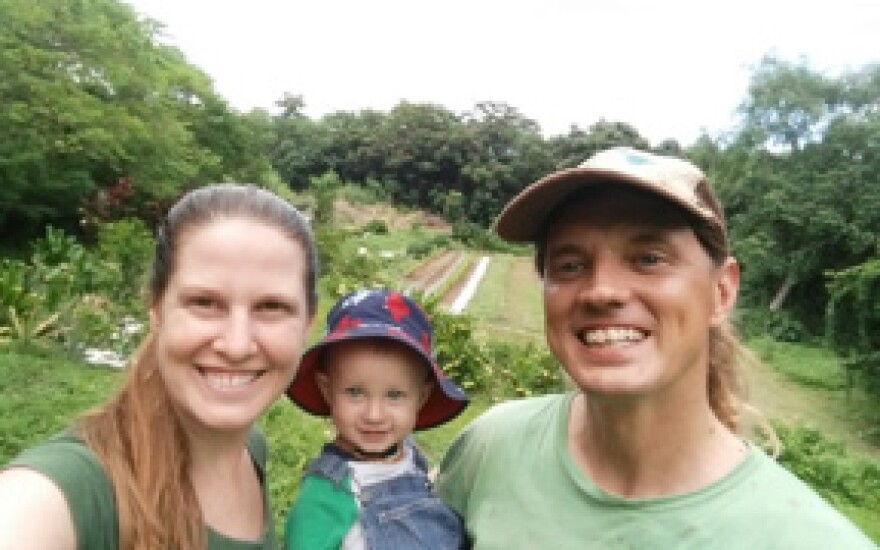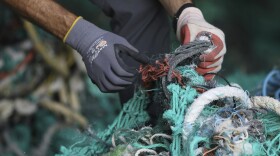It was the matchmaking event of the 2017 Hawai?i Agriculture Conference. More than 70 local farmers and distributors took part in the first-ever Grower-Buyer Meet-Up. HPR’s Ku?uwehi Hiraishi reports.
Kona farmer Angelica Stevens set-up her table at the Grower-Buyer Meet-Up with a basket full of samples.

“Today we have samples of pili grass seed. We package them up in these nice little bags,” says Stevens, “Pili grass was the main grass used for thatching on all the islands.”
Stevens runs her family’s 8.9 acre farm in Kahalu?u where she grows fruits, vegetables, Kona coffee and teas. But Hawaiian plant seeds are her niche.
“We’re basically they only place in Hawai?i where you can buy pili grass seed,” says Stevens.
Every ten minutes a new buyer comes along. Next up is Derek Kurisu from Big Island-based KTA Super Stores. He already knows what he wants from Stevens. Unfortunately for her, it’s not the seeds.


“I’m kind of excited about the teas. So do you know the health benefits of these things?” asks Kurisu.
“I do. So popolo leaf is for pneumonia, bronchitis,” replies Stevens.
Stevens wows Kurisu with her knowledge of the health benefits of her teas. The two talk distribution, packaging, and once the ten minutes are up agree to meet again.
“You know, it’s all about creating demand for buy local,” says Scott Enright, Chairperson of the state Department of Agriculture.
The Department of Agriculture is one of the sponsors of the conference.
“It’s an excellent opportunity to give them new markets and to grow agriculture,” says Enright, “To the extent that we continue to grow a diversified agricultural economy, and we replace 10 percent of our import, that’s $300 million.”
According to his calculations that includes $94 million for local farmers like North Shore farmer Dave Burlew of M?lama ??ina Organic Farm, preferred to forgo traditional distributors.

“It seems that like there’s a lot of distribution models that are being developed now, some are modeled under the CSA (community-supported agriculture),” says Burlew, “Where you’ve got a single buyer buying from a multitude of farmers and distributing that way.”
CSA or Community Supported Agriculture is a distribution model where subscribers receive a CSA box of produce every week. Melissa Mainz of 808 Organics is known for her CSA boxes. Mainz was hoping to add some small O?ahu farmers like Burlew to her list of producers.

“I represent a lot of small neighbor island organic farmers, so it’s kind of nice to find a couple of organic farms on O?ahu,” says Mainz, “I like small. I’m all about helping out the little guy.”
Hunter Heavilin was on the prowl for both buyers and growers on O?ahu to populate his online matchmaking service Farm Link Hawai?i. Here’s the feedback he got.
“A lot of interest from people on other islands about, ‘Are we ever going to expand operations there?’” says Heavilin, “There’s certainly interest. So I think what it speaks that the opportunities that technology affords that connect small producers with new markets”.
Giving these local growers and buyers an opportunity to continue today’s matchmaking conversations online.




